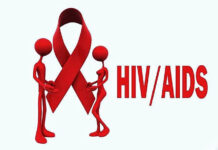Breastfeeding is one of the best ways to give a baby the nutrition they need, especially in the first two years of life. Health experts, like the World Health Organization (WHO), recommend that mothers breastfeed their babies exclusively for the first 6 months.
This means the baby only gets breast milk, which is full of nutrients and antibodies that protect them from diseases.
After 6 months, the baby can start eating solid foods, but breastfeeding should continue until they are 2 years old or even longer. Even as the baby starts eating other foods, breast milk continues to provide important nutrients that help their immune system stay strong.

However, many mothers stop breastfeeding early, often due to reasons like returning to work, societal pressure, or feeling that breast milk is no longer needed after starting solid foods. It’s important to know that breastfeeding beyond 6 months has many benefits, including protection from illnesses and better brain development.
Breastfeeding is also beneficial for mothers. It helps them reduce the risk of breast cancer, ovarian cancer, and type 2 diabetes. It can also help with weight loss after pregnancy.
By understanding these benefits, mothers can feel more confident in continuing to breastfeed for up to 2 years, ensuring a healthy future for both them and their baby.




